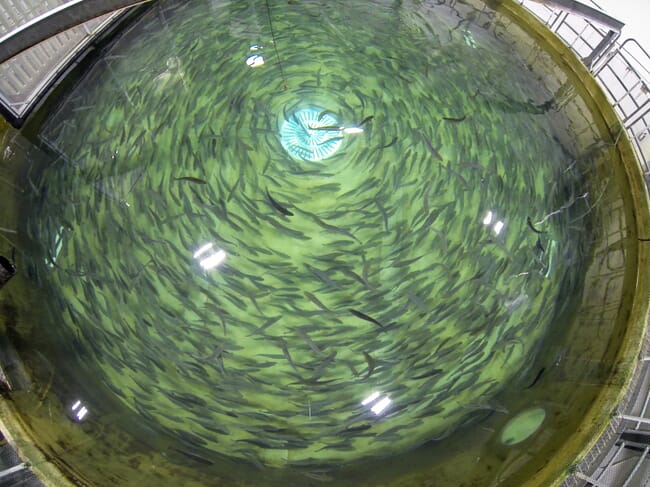The Conservation Fund’s Freshwater Institute, which focuses on R&D relating to recirculating aquaculture systems (RAS), has teamed up with the animal feed giant, following recent efforts between the two groups that validated the effectiveness of Cargill’s new diet for Atlantic salmon grown in land-based RAS. The partners started working together in 2018, and this new agreement solidifies the collaboration through 2023 and beyond.

Dr Marc Turano, nutrition and technology lead for Cargill Aqua Nutrition in North America, summarised the importance of the partnership, saying: “Our customers want the best nutrition possible. Partnering with the Freshwater Institute has provided key access to capabilities, but more importantly to renowned thought-leaders in land-based aquaculture production.”
The institute provides Cargill nutritionists and researchers with access to fish, systems, research facilities and their team of scientists, engineers and fish culturists with decades of RAS experience. Together, the partners hope to further improve land-based aquaculture's environmental and economic performance through feeds developed and tested specifically for RAS.
Dr John Davidson, research scientist at the Freshwater Institute, who is collaborating closely with Cargill Aqua Nutrition, described the importance of ideal feeds for a successful RAS operation: “Diets developed for use in RAS should support optimal fish health and performance while facilitating good water quality and system operation. For example, feeds like Cargill's recently developed EWOS Clear for land-based salmon farming produced settleable solids in recent research trials that were effectively removed from the recirculating flow, thereby improving the fish culture environment and overall RAS operation."
